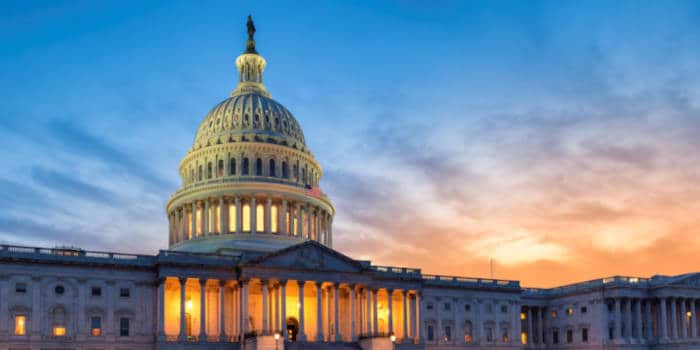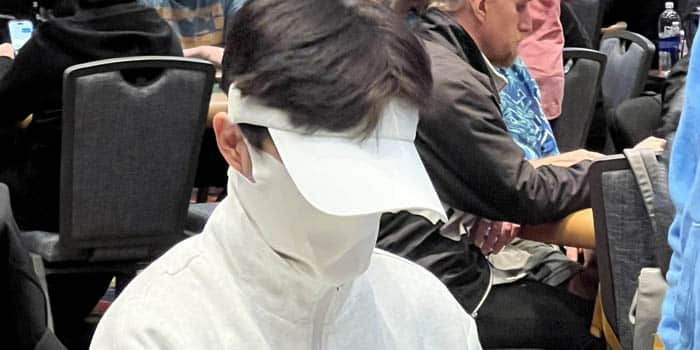- Casino
- By State
- Alabama
- Alaska
- Arizona
- Arkansas
- California
- Colorado
- Connecticut
- Delaware
- Georgia
- Florida
- Hawaii
- Idaho
- Illinois
- Indiana
- Iowa
- Kansas
- Kentucky
- Louisiana
- Maine
- Massachusetts
- Maryland
- Michigan
- Minnesota
- Mississippi
- Missouri
- Montana
- Nebraska
- Nevada
- New Hampshire
- New Jersey
- New Mexico
- New York
- North Carolina
- North Dakota
- Ohio
- Oklahoma
- Oregon
- Pennsylvania
- Rhode Island
- South Carolina
- South Dakota
- Tennessee
- Texas
- Utah
- Vermont
- Virginia
- Washington
- West Virginia
- Wisconsin
- Wyoming
- By State
- Slots
- Poker
- Sports
- Esports
Congressional Leaders Aim to Combat Gambling Addiction with GRIT Act
This groundbreaking legislation aims to establish a dedicated federal funding stream aimed at preventing, treating, and researching gambling addiction in the country

In a landmark move to address the growing concern of gambling addiction in the United States, Sen. Richard Blumenthal of Connecticut and Rep. Andrea Salinas of Oregon introduced the Gambling Addiction Recovery, Investment, and Treatment (GRIT) Act on January 11.
Rising Gambling Addiction Rates Prompt NCPG Endorsement of GRIT Act
With an estimated 7 million American adults grappling with gambling addiction, the social and economic repercussions are staggering, amounting to a yearly cost of $7 billion. This includes expenses related to criminal justice, healthcare, job losses, and bankruptcies.
Startlingly, research from the National Council on Problem Gambling (NCPG) indicates a 30% increase in the risk of gambling addiction between 2018 and 2021.
Recognizing the urgent need for federal intervention, Susan Sheridan Tucker, President of the NCPG Board of Directors, applauded the introduction of the GRIT Act.
Tucker stated: “The GRIT Act reflects a pivotal step towards long-overdue support for those grappling with gambling addiction. The National Council on Problem Gambling stands in full support of this legislation, recognizing its potential to make a lasting difference in the lives of individuals and families across the nation.”
Keith Whyte, Executive Director of the NCPG, also conveyed appreciation for the leadership shown by Sen. Blumenthal and Rep. Salinas. He mentioned that the introduction of the GRIT Act serves as evidence of their shared commitment to reducing the harm associated with gambling and confronting the challenges posed by gambling addiction.
The GRIT Act Utilizes Existing Revenue to Tackle Gambling Addiction
The key provisions of the GRIT Act include the allocation of 50% of the current federal sports excise tax revenue to gambling addiction treatment and research administered by the US Department of Health and Human Services.
This revenue distribution involves directing 75% to states for prevention and treatment through the Substance Abuse Prevention and Treatment Block Grant program, while the remaining 25% goes to the National Institute of Drug Abuse for research grants into gambling addiction.
The legislation authorizes spending for a decade, with a mandated report to Congress on the program’s effectiveness within three years of passage.
Remarkably, the GRIT Act is set to achieve its objectives without raising taxes or creating additional bureaucracy. Instead, it leverages existing federal excise tax revenue and operates within the established framework of the Health and Human Services.
The GRIT Act is poised to provide crucial support to state health agencies and nonprofits tackling gambling problems while fostering best practices and comprehensive research at the national level. Despite the prevalence of gambling addiction in the US, no federal agency currently addresses it, and there are no designated federal funds for its treatment or research.
Related Topics:
Silvia has dabbled in all sorts of writing – from content writing for social media to movie scripts. She has a Bachelor's in Screenwriting and experience in marketing and producing documentary films. With her background as a customer support agent within the gambling industry, she brings valuable insight to the Gambling News writers’ team.
Must Read

















